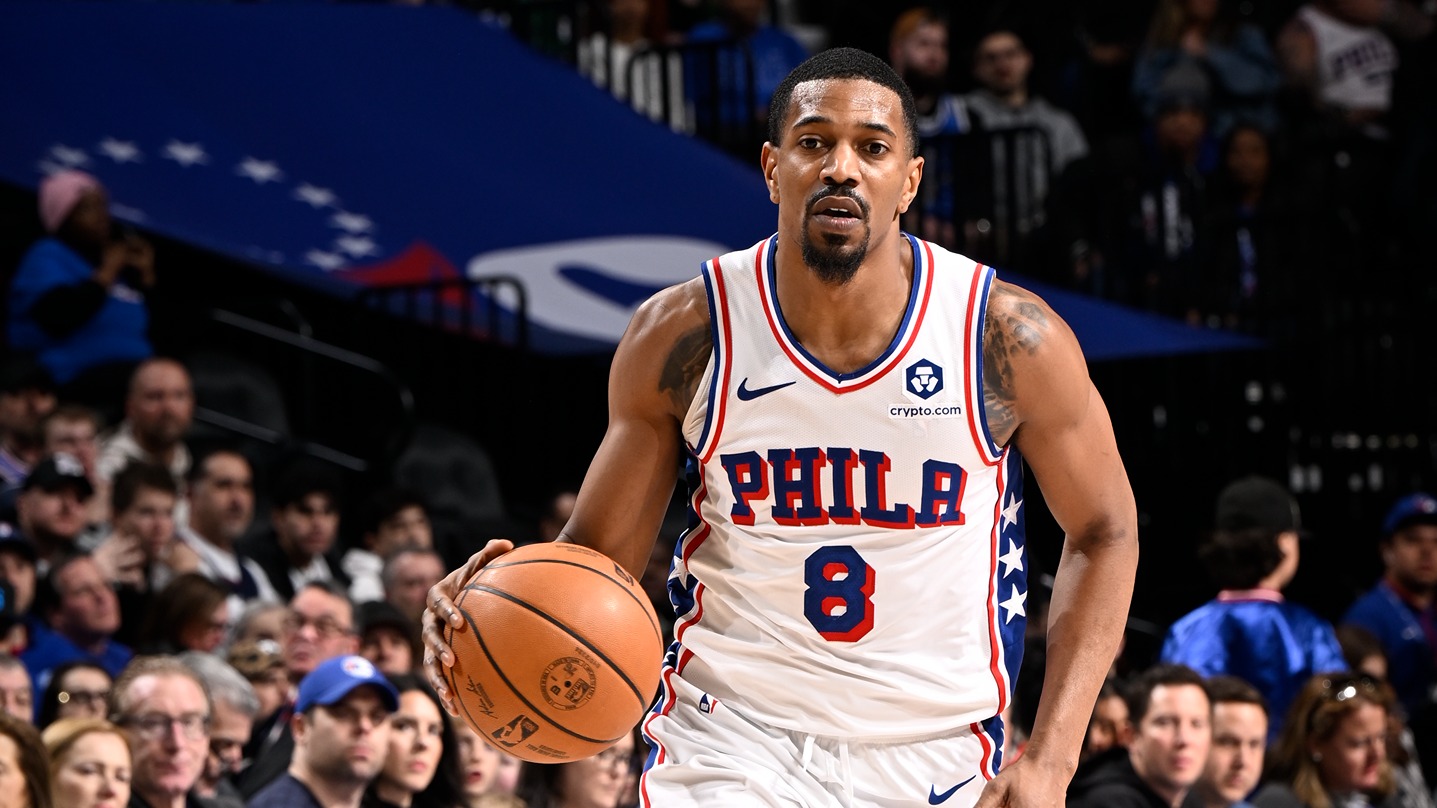4 specific ways Rivers earned Coach of the Month award originally appeared on NBC Sports Philadelphia
Doc Rivers knows what he’s doing and, though proving that wasn’t necessary, he certainly did in his first month-plus as Sixers head coach.
The NBA announced Monday that Rivers was the Eastern Conference’s Coach of the Month for games in late-December and January. The Cavs’ J.B. Bickerstaff and Nets’ Steve Nash were the other East nominees, while Utah’s Quin Snyder was the Coach of the Month in the West.
Get Philly local news, weather forecasts, sports and entertainment stories to your inbox. Sign up for NBC Philadelphia newsletters.
According to a Sixers press release, Rivers has now won the Coach of the Month award 12 times, tied for second all-time. Gregg Popovich has won the award on 17 occasions.
How specifically did Rivers earn the award with his new team? Let’s look at a few ways:
Milton the sixth man
Philadelphia 76ers
Complete coverage of the Philadelphia 76ers and their rivals in the NBA from NBC Sports Philadelphia.
Though Shake Milton’s jumper has cooled off a bit over the last seven games, he’s been among the league’s best sixth men, averaging 14.3 points and 3.1 assists.
Rivers has asked Milton simply to “be Shake” and play a free, aggressive style similar to the 23-year-old’s days in the G League. While Milton’s the one who’s added muscle, improved his individual defense and drawn fouls at a higher rate, Rivers has empowered him to keep developing. It’s a contrast to last season, when Milton’s role fluctuated and he was told at one point that he wouldn’t be part of the Sixers’ post-All-Star Game rotation.
Quite the duo
We didn’t want to overestimate Rivers’ impact on Tobias Harris when the 59-year-old first took the Sixers job, but we figured he could help by putting Harris in more pick-and-rolls and encouraging him to drive to the hoop with greater decisiveness. Based on Harris’ first 18 games, which he’s played at an All-Star level, we might have underestimated what Rivers could do for Harris’ game.
In addition to Rivers’ behind-the-scenes work to emphasize uncomplicated decision-making with Harris, his preferred way of playing has increased Harris’ opportunities in transition and in the pick-and-roll. A faster, more fluid offense has clearly been conducive to Harris’ strengths.
Harris as pick-and-roll ball handler
- 2019-20: 3.3 possessions per game, 0.85 points per possession
- 2020-21: 4.2 possessions per game, 1.01 points per possession
Harris in transition
- 2019-20: 2.7 possessions per game, 1.17 points per possession
- 2020-21: 4.1 possessions per game, 1.41 points per possession
Savvy late-game coaching
The Sixers’ 9-1 record in “clutch” situations, defined as the final five minutes of a game when the teams are separated by five points or less, is best in the NBA.
Joel Embiid’s post scoring and Ben Simmons’ elite defense have a lot to do with that, but Rivers has seemingly struck gold with close to every fourth-quarter move thus far.
Examples include playing Milton for the entire fourth period as part of a lineup with three ball handlers in the Sixers’ opening-night win over the Wizards, turning to a 2-3 zone defense Sunday night spearheaded by Matisse Thybulle and Ben Simmons, and drawing up a multi-option play that led to Harris’ game-winner against the Lakers. Perhaps the Sixers’ late-game luck will turn, but Rivers has generally put his players in all the right positions.
Using Embiid in new ways
Embiid has remained the league’s most efficient high-volume post player. He’s been sharp against double teams, tallying plenty of hockey assists and benefiting from the improved shooting around him. Rivers has forced opponents to prove they can stop Embiid, calling his number over and over again when he's on a roll.
Still, the Sixers haven’t radically changed their post offense around Embiid. The most significant Embiid-related adjustment from Rivers is likely how he’s used the All-Star big man in “Delay” actions, which feature Embiid at the top of the key. Rivers thought it was fortuitous that Embiid thrived with that look on Jan. 12, scoring 45 points in an overtime win over the Heat hours after the Sixers worked on “Delay” for the first time.
“Sometimes life is luck," Rivers said. "We worked on this play today before shootaround — it’s called 'Delay' — where we throw it to the middle, which is Joel, and he becomes your point guard on the plays. I didn’t know we were going to run it entirely for the fourth quarter and overtime, because we had no choice but to run it. It’s funny, we were laughing on the bench — it’s amazing. We work on it today and then it ends up being a savior for us.”
Embiid has enjoyed the variety in Rivers’ offense, to put it mildly. He’s posting 28.3 points per game with a 66.9 true shooting percentage and is building a strong early MVP case.
“Playing out of ‘Delay’ actions, that’s good for me,” he said on Jan. 20, “because how are you going to double that? It’s hard to double from the middle of the floor, and if you double, we’ve got way too many good shooters for me to kick it out, and (they’ll) make the shot. So, there’s a lot of freedom. I get to be myself in that offense.
“It’s not just about OK, let’s dump it down to Jo and let him figure it out. … I can attack the game. Especially if I know they’re double teaming or triple teaming me, I can attack in a different style. I’m just taking advantage of it. It’s been working well, and it’s hard to guard.”



